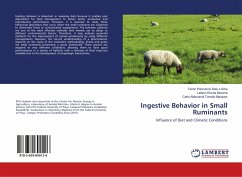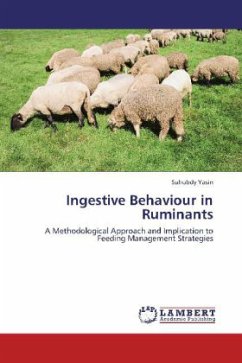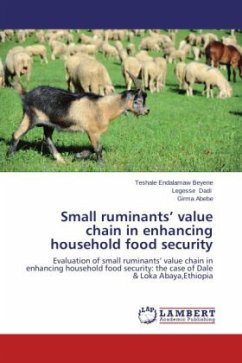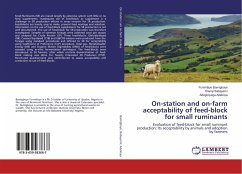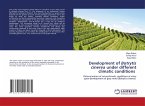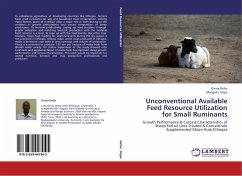Feeding behavior is important in assessing diets because it enables post adjustment for feed management to obtain better productive and reproductive performance. However, it is essential to study these behavioral alterations that occur when the small ruminants are subjected to alternative feeds or concentrated supplements. The behavior patterns are one of the most effective methods that animals use to adapt to different environmental factors. Therefore, it may indicate potential methods for the improvement of animal productivity by using different managements. However, the correct understanding of a phenomenon depends on the study of the evaluation methodology. Sheep and goats are small ruminants presenting a great biodiversity. These species are adapted to very different conditions, allowing them to have good performances in a variety of habitats with a diversity of feed resources available due to the development of physiologic mechanisms.
Bitte wählen Sie Ihr Anliegen aus.
Rechnungen
Retourenschein anfordern
Bestellstatus
Storno

